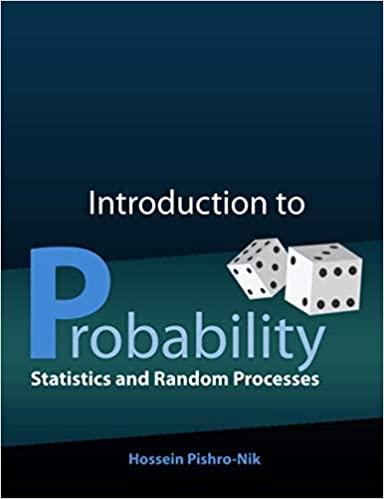An engineer is measuring a quantity q. It is assumed that there is a random error in
Question:
An engineer is measuring a quantity q. It is assumed that there is a random error in each measurement, so the engineer will take n measurements and reports the average of the measurements as the estimated value of q. Specifically, if Yi is the value that is obtained in the i'th measurement, we assume that Yi = q +Xi, where Xi is the error in the ith measurement. We assume that Xi's are i.i.d. with EXi = 0 and Var(Xi) = 4 units. The engineer reports the average of measurements
How many measurements does the engineer need to make until he is 95% sure that the final error is less than 0.1 units? In other words, what should the value of n be such that
Fantastic news! We've Found the answer you've been seeking!
Step by Step Answer:
Related Book For 

Introduction To Probability Statistics And Random Processes
ISBN: 9780990637202
1st Edition
Authors: Hossein Pishro-Nik
Question Posted:





